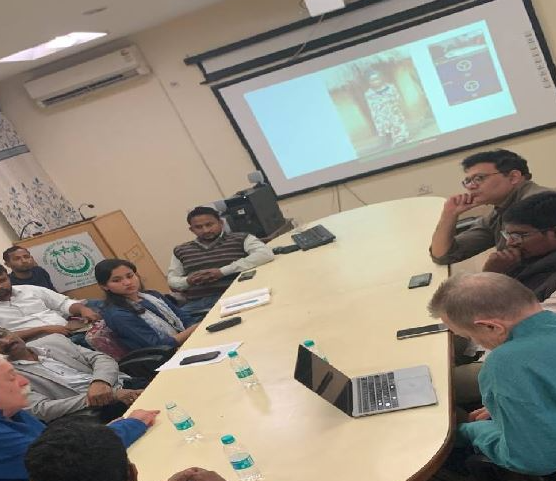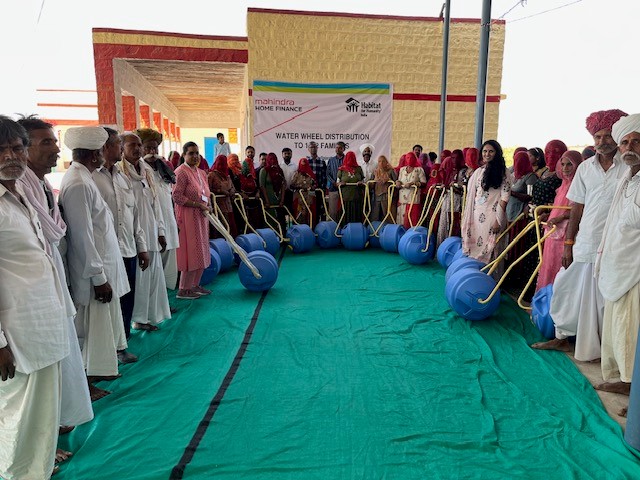
The Department of Economics, Jamia Millia Islamia (JMI) as part of the G20 lecture series organized special lectures on “Sustainable Development Goals-Goals 4 & 6 (Quality Education and Water). Mr. David H Albert & Dr. David Blake Willis from the USA delivered the lectures.
Prof. Asheref Illiyan, Head, Department of Economics chaired the session and welcomed the speakers and participants for the lecture. Prof. Bathula Srinivasu, Coordinator, Lecture Series gave a brief introduction about the speakers.
Mr. David H Albert, USA, Co-Founder Friendly Water for the World Project and recipient of Jamnalal Bajaj Award 2021 for application of Gandhian ideas throughout the world, started his speech by problematizing the term development and what it really contributes to the society.
Mr. Albert raised various concerns about Farmers Suicides in Maharashtra and some other states and the condition of the borrowed families. Also he expressed his worry about high usage of pesticides which is resulting in health issues. He emphasised the fundamental requirements of clean air, water, food, education to people and expressed it as sustainable human rights. Citing examples from personal experiences from the villages of various countries of Africa, he explained the bad scenario of water scarcity. Women and children had to spend maximum time travelling kilometres long to fetch water, even in the wee hours is making their difficulty to extreme levels, he added. He also said the impact of climate change is adding more complication to the worsening conditions. Further, he explained the success stories of their organization which helped those villages to a larger extent in providing the sustainable human rights such as clean water, food and education.
The second speaker Dr. David Blake Willis, Doctoral Faculty, School of Leadership Studies, Fielding Graduate University, USA, citing his personal experiences from Japan, pushing the concept of word ‘AMAE’, he explained rather than dependence or independence, the concept of ‘interdependence’ is going to make great change in all aspects. He expressed his concern that today people are colonised by the cobwebs of modernisation and it is high time to decolonise the thoughts and habits. In recent times, that huge sum of revenue is allocated for military expenditure by countries; he juxtaposed the question of level of priority to the people and resources.
Dr. Willis reiterated the need for more priority for education. He mentioned that the contribution of India with regard to the present technology should not be forgotten. Further, he was of the opinion that for each and everything we need not to depend upon western countries for the ideas and innovations. Also he urged the participants to develop respect for nature, so the development which can address humanity is possible.
The lecture was followed by discussion with queries and questions by participants. The event was concluded with the vote of thanks proposed by Ms. Anam Firdaus of the Department.
";

